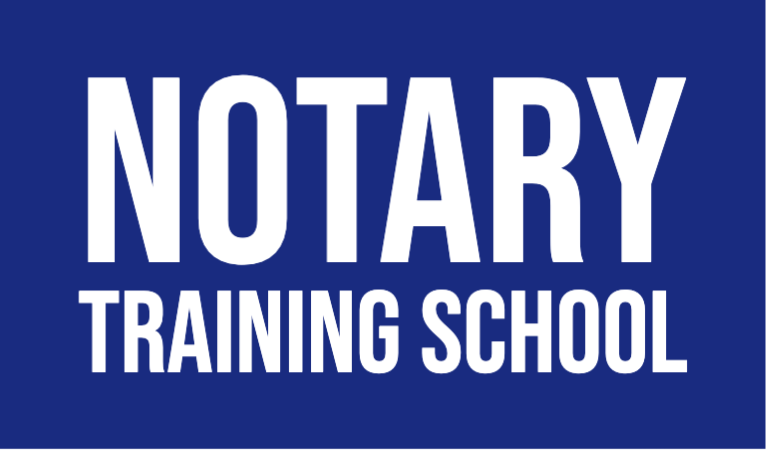How to Become a Notary in CT

Are you looking to become a notary in the state of Connecticut?
If so, you’ve come to the right place! Notarizing documents can be an exciting and rewarding career move, as it grants you various responsibilities within your community.
You may even find yourself serving as an essential witness to important transactions like property sales or loan signings. However, before jumping into this job, aspiring notaries public needs to understand what is required for licensing and appointment in Connecticut.
This blog post will cover everything from basic requirements and procedures to best practices when fulfilling a CT Notary Public duties. So let’s get started!
Requirements to be a Notary in Connecticut

Any person who is eighteen years old or older and lives in or has a business in Connecticut can apply to be a notary public. This means that you do not need to be a Connecticut resident.
How do I get my notary license in CT?

1. Review the Notary Public Manual
The manual contains the Connecticut law regarding notaries.
The application has a test on the material in the manual.
This test is approved and administered by the Connecticut Secretary of State. You need to answer each question right to get a notary commission.
2. Complete a Jurat and Writing Sample
You will need a Jurat and Writing Sample to apply to be a notary public.
You must upload both during the online application process.
The Writing Sample must be in the handwriting of the notary public.
The Jurat must be subscribed and sworn to before a person authorized to give an oath such as a current notary public.
If you do not complete the Jurat and Writing Sample correctly, it will cause delays in your application process, so please be careful when completing it and ensure that it is notarized.
3. Have a respected person complete a Certificate of Character
The Certificate of Character must be filled out entirely and signed by a public official or a reputable business or professional person who is not related to you and has known you for at least one year.
4. Pay the statutory non-refundable application filing fee of $120
You can use your credit or debit card with a Visa, Mastercard, American Express, or Discover Card logo to pay. Or you can use your checking account to pay.
5. Go to the eLicense website
The eLicense website has instructions on how to sign up for an account.
6. After logging in, click on the “Online Services” icon at your screen’s top right. Afterward, select “Initial Application” and “Notary Public Certification” to continue your application process.
As you follow the instructions on your screen, complete your application and wait.
You will soon receive a confirmation email once it has been sent, followed by another one when it is approved (which usually takes between 3-5 business days).
Soon enough, you’ll have received your new notary certificate, and you can perform notarial acts and other notary services.
How long does it take to become a notary in CT?

It usually takes 3-5 business days for your notary application to be approved.
Is notary training required to become a notary in Connecticut?

No, training is not required to become a notary in Connecticut.
However, it is highly recommended that you take the time to learn and understand the duties, obligations, and responsibilities of a Notary Public.
The Connecticut Notary Public Manual includes valuable information about the role and provides some ideas for best practices when performing your duties. Being familiar with these guidelines will help you pass the written examination that is part of the application process.
Is a notary exam required to become a notary in Connecticut?

Yes, a written examination is required to become a notary in Connecticut.
The written examination tests your knowledge of the duties and responsibilities that come with the position of Notary Public in the state and is submitted with the completed application form. You must pass this test to be granted a commission as a Notary Public.
Is a surety bond required to become a notary in Connecticut?
No, a notary surety bond is not required to become a Notary Public in Connecticut.
Is a notary errors and omissions insurance policy required to become a notary in Connecticut?
No, an errors and omissions insurance policy is not required to become a Notary Public in Connecticut.
However, it is highly recommended that all notaries public purchase such insurance to be protected from any mistakes or negligence when performing notarial acts.
This will protect you from any potential liability for unintentional damages that may occur.
Do I need to purchase a notary stamp in Connecticut?
No, a notary stamp is not required to become a Notary Public in Connecticut.
However, it is highly recommended that you purchase a stamp because this will help make your work more secure and reliable.
If you do use a stamp it must meet specific requirements.
Do I need to purchase a notary journal in Connecticut?
No, a notary journal is not required to become a Notary Public in Connecticut.
However, purchasing a journal to keep records of all the notarial acts you perform is highly recommended.
This will help protect you from any potential liability and ensure that your work is accurate and secure.
How long does a Connecticut Notary commission last?
A Connecticut Notary commission lasts for five years from the date of issuance.
How much does it cost to become a notary in Connecticut?

The application fee is $120
Prices for Connecticut notary supplies vary.
A stamp should cost $15-$25. A journal could cost $10-$50. You might also need other supplies like pens, sticky notes, or extra ink for your stamp.
What fees can Connecticut Notaries charge per notarization?
Connecticut notaries can charge $5 per signature for notarial acts performed.
How do I become a mobile notary in CT?

Anyone with a current notary commission can become a mobile notary, but Connecticut general statutes limit the amount of travel expenses that can be changed to $0.35 per mile.
Can I perform remote online notarization in Connecticut?

No, remote notarization is not currently allowed in Connecticut.
You must be physically present to perform a notarial act in the state.
However, this could change as more states begin allowing electronic notarization methods.

Can you be a notary signing agent in CT?

Yes, you can be a Notary Signing Agent in Connecticut.
A notary public with the proper education and experience can become a certified Notary Signing Agent and perform additional duties such as preparing loan documents and verifying signatures. The state requires attorney involvement for real estate transactions, but many Connecticut notaries become successful signing agents.






Responses